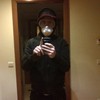
ΔΙΑΦΗΜΙΣΗ
Sky News was able to smuggle a news crew into Khalidiyeh, Homs last week and managed to film the devastation caused by the shells the regime keeps flinging around. This could be important, as the footage they shot is primary source material captured by a well-respected news organization, rather than some Syrian guy with a camera posting to YouTube. Which isn't to say that citizen documentation of the conflict is in any way invalid, just that the UN might have to take Sky's footage—and thus the conflict as a whole—a bit more seriously.
ΔΙΑΦΗΜΙΣΗ
On Tuesday, Human Rights Watch released a report documenting a series of war crimes committed by the Syrian army in Idlib while Kofi Annan was negotiating his peace plan back in March. The report reveals how the Syrian army would first start, "shelling with tanks early in the morning, sometimes together with attacks from helicopters. After a few hours, tanks, and infantry advanced into the towns where they stayed for one to three days before moving on to the next town: Sarmeen (March 22-23); Saraqeb (March 24-27); Taftanaz (April 3-4); Hazano (April 5); and Kelly (April 6)."It was the town of Taftanaz where one of the more horrific massacres took place, as the army targeted the Ghazal family who were supporters of the FSA. Nineteen members of the Ghazal family were killed. HRW spoke to one of the family members: "We first found five bodies in a little shop next to the house. They were almost completely burned. We could only identify them by a few pieces of clothes that were left. Then we entered the house and in one of the rooms found nine bodies on the floor, next to the wall. There was a lot of blood on the floor. On the wall, there was a row of bullet marks. The nine men had bullet wounds in their backs, and some in their heads. Their hands were not tied, but still folded behind."This report seems in some ways like HRW doing the job of the UN monitors, gathering evidence of war crimes and rights abuses and releasing it for the world to see. The more of these reports the better.
ΔΙΑΦΗΜΙΣΗ
On Thursday, army soldiers again entered the Aleppo University campus in a series of raids on the restive university that, in the past few months, has seen a series of anti-government protests. The raids by soldiers and shabiha militia killed four students, with one being thrown from a fifth floor dorm, and 200 arrested. Aleppo is Syria's second biggest city and so far has not seen widespread anti-government protests apart from at the university. These raids are a clear effort to send a message to other inhabitants of the city that protesting is a deadly exercise.In other news:As the security situation in Syria deteriorates, the Chicago Tribune reports on fears about the safety of Syria's chemical weapons stockpile.The regime is so desperate to erase any existence of the opposition that it even demolishes walls that have anti-government graffiti sprayed on them.Although defections remain high, they rarely come without a cost, with many defecting soldiers get killed in the process, being branded as traitors by the regime.
With the healthcare system collapsing and any available medical aid being shifted to help the soldiers on either side of the revolution, the disabled and handicapped are left behind.This week Syria goes to the polls in parliamentary elections, which are widely seen as a farce and a smokescreen. Check back next week to see if hell freezes over and these "elections" make a difference.
ΔΙΑΦΗΜΙΣΗ
